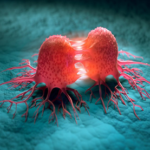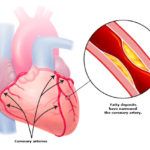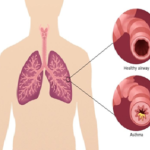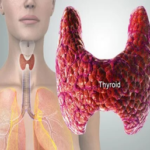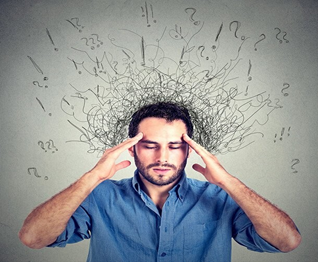
Anxiety disorder - Best homeopathic treatment
WHAT IS ANXIETY DISORDER ?
Anxiety disorder is a type of chronic mental health condition. Anxiety makes it difficult to get through the day. Anxiety disorder is a common condition and it is a constant worry and anxiety over different activities and stressful life situations of day-to-day life.
It may be genetic. All these things contribute to the development of anxiety disorder. The disorder may start at any time in life, including childhood.
It’s normal to have some anxiety. Sometimes feel anxious or nervous to tackle a problem at work, go to an interview, take a test or make an important decision. And anxiety can even be beneficial. For example, anxiety helps us notice dangerous situations and focuses our attention, so we stay safe.

But an anxiety disorder goes beyond the regular nervousness and slight fear you may feel from time to time.
An anxiety disorder happens when
- Anxiety interferes with the ability to function.
- Often overreact when something triggers the emotions.
- Can’t control the responses to situations.
Anxiety disorders can make it difficult to get through the day.
The symptom is the almost constant presence of worry or tension, even when there is little or no cause. Worries about family or relationship problems, work issues, money, health, career, and personal problems etc .
WHAT ARE THE TYPES OF ANXIETY DISORDER ?
- Generalised anxiety disorder (GAD) :- It is an extreme and unrealistic worry and tension even if there’s nothing to trigger these feelings. Anxious about various topics, including health, work, school and relationships. Physical symptoms of GAD can include restlessness, difficulty concentrating and sleeping problems.
- Panic disorder :- It is a sudden panic attack. These attacks often feature stronger, more intense feelings than other types of anxiety disorders. The feelings of terror may start suddenly and unexpectedly or they may come from a trigger, like facing a situation of dread.
During a panic attack, you may experience:
- Sweating.
- Palpitation (feeling like your heart is pounding).
- Pain in chest
- Choking sensation may feel like heart attack
Panic attacks are very upsetting. People with panic disorder often spend a lot of time worrying about the next panic attack. They also try to avoid situations that might trigger an attack.
- Phobias :- It is an intense fear of certain situations or objects. A specific phobia, or a simple phobia, is an intense fear of a particular object or situation. It may help to avoid everyday situations. Some specific phobias include fear of Animals, such as spiders, dogs or snakes ,Blood ,Flying ,Heights ,Injections ,social fear , agoraphobia
Social anxiety disorder
people may have overwhelming worry and self-consciousness with daily social situations. You may worry about others judging you or you may be anxious that you’ll embarrass yourself or open yourself up to ridicule. People with social anxiety disorder may avoid social situations entirely.
Agoraphobia
It is an intense fear of being overwhelmed or unable to get help. Usually, you have a fear of two or more of these environments:
- Open spaces.
- Enclosed spaces.
- Lines or crowds.
- Public transportation.
- Places outside your house.
- While crossing the street.
In severe situations, a person with agoraphobia may not leave the house at all. They’re so terrified of having a panic attack in public that they prefer to stay inside the home .
- Separation anxiety :- This condition mostly happens to children or teens, who may worry about being away from their parents. Children with separation anxiety disorder may fear that their parents will be hurt in some way or not come back as promised. It happens a lot in preschoolers. But older children and adults who experience a stressful event may have separation anxiety disorder as well.
- OCD ( obsessive compulsive disorder ) :- Excessive thoughts that lead to repetitive behaviours. Obsessive-compulsive disorder is characterised by unreasonable thoughts and fears that lead to compulsive behaviours such as washing ,checking things repeatedly etc .OCD often centres on themes such as a fear of germs or the need to arrange objects in a specific manner. Symptoms usually begin gradually and vary throughout life.
- Post traumatic stress disorder :- Post-traumatic stress disorder (PTSD) is a disorder that develops in some people who have experienced a shocking, scary, or dangerous event. It is natural to feel afraid during and after a traumatic situation. Fear triggers many split-second changes in the body to help defend against danger or to avoid it. This “fight-or-flight” response is a typical reaction meant to protect a person from harm. Nearly everyone will experience a range of reactions after trauma, yet most people recover from initial symptoms naturally. Those who continue to experience problems may be diagnosed with post traumatic stress disorder. People who have post traumatic stress disorder may feel stressed or frightened, even when they are not in danger.
WHAT ARE THE CAUSES OF ANXIETY DISORDER ?
- Heredity: Anxiety disorders tend to run in families. It may inherit them from one or both parents .
- Chemical imbalance: Severe or long-lasting stress can change the chemical balance that controls the mood. Experiencing a lot of stress over a long period of time can lead to an anxiety disorder.
- Environmental factors: Experiencing a trauma might trigger an anxiety disorder, especially in someone who has inherited a higher risk of anxiety .
WHAT ARE THE SYMPTOMS OF ANXIETY DISORDER ?
General symptoms of an anxiety disorder include:
Mental symptoms:
- Feeling panic, fear and uneasiness.
- Uncontrollable, obsessive thoughts.
- Nightmares.
- Repeated thoughts or flashbacks of traumatic experiences.
Physical symptoms:
- Dry mouth.
- Cold or sweaty hands.
- nausea .
- Shortness of breath.
- Heart palpitations.
- Numbness or tingling in hands or feet.
- Muscle tension.
Behavioural symptoms:
- Irritability .
- Ritualistic behaviours, such as washing hands repeatedly.
- Trouble sleeping.
- Restlessness
- Headache
- Depression
- Difficulty concentrating
- Fatigue
PREVENTIVE TIPS
- Limit caffeine: Stop or limit caffeine intake , including coffee, tea, cola and chocolate.
- Live a healthy lifestyle: Exercise regularly and eat a healthy, balanced diet.
SCOPE OF HOMEOPATHY
Homeopathy deals with symptoms; physical and Mental symptoms which are key symptoms for the individualization of the case. In Anxiety disorder, all these mental symptoms are very helpful to select a constitutional remedy that cures anxiety disorder permanently. In Savi homeopathic online treatment center , many Anxiety disorder patients have benefited from our classical homeopathic treatment packages. We apply the most scientific and research-based homeopathic treatment package that gives a long-standing cure.
Coronary artery blockage - Homeopathic treatment WHAT IS CORONARY ARTERY Read More
Homeopathy permanent recovery for Thyroid Disorders WHAT IS THYROID DISORDER?Thyroid Read More


